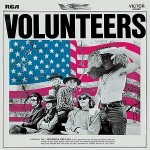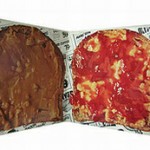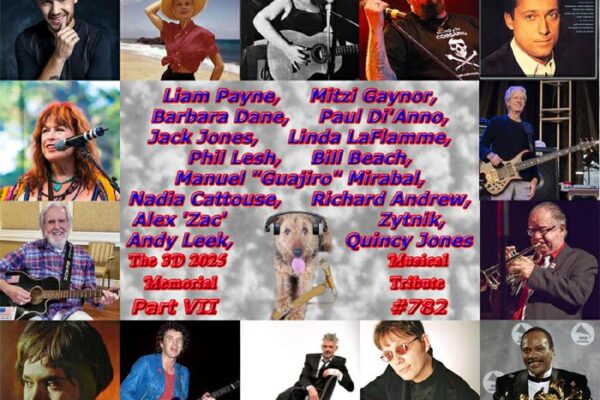

 The epiphany of an eight year old…
The epiphany of an eight year old…
The backdrop of my childhood played out with images of the Viet Nam war and the unrest that culminated in the protests at the 1968 Democratic Convention coming over the television screen. While I wasn’t privy to what it all meant, I did know that the world around me was changing and that my older sister and her peers were making it happen. And I also knew that I very badly wanted to be a part of it all.
I was eight years old in 1969 visiting my grandmother’s house when up the drive came the coolest MG convertible (if memory serves me right) I’d ever seen in my life. The car stopped right in front of granny’s house and out popped my groovy long-haired cousin Paul in full-on hippie regalia. Nothing was cooler than Cousin Paul at that moment, and then I spotted the record that he had laying on the front seat of the car.
It was called Volunteers by Jefferson Airplane. I had never heard of the group, although I already knew the song “Somebody To Love” from my older sister’s records. I just never made the connection that this was the same group.
I asked Cousin Paul if I could look at the record and he gladly obliged. The image on the front cover was a bit disturbing to me. I couldn’t tell if each band member was wearing a mask, or if they just looked that way. I just knew that the image was kind of creepy. Upon flipping the jacket over, I began reading the “Paz Chin-In Huge Success” story on the back cover. It didn’t make any sense to me. Then I opened the gatefold and saw the huge peanut butter and jelly sandwich inside which made me wonder what the sandwich had to do with everything else here.
Inside was a fold-out poster with the headings “Revolt!” on the front and “Feed And Water Your Flag” on the back. I was totally confused, and although I hadn’t heard a note of the music contained within, I knew was that I wanted to own this record.
Fortunately my ninth birthday was just around the corner, and as promised I received my very own copy of Volunteers from one of our neighbors with whom we exchanged birthday gifts.
A whole new world opened up to me upon putting the needle down on the vinyl.
First there was the opening tune with some of the most harmonious singing the Airplane ever committed to vinyl. “We Can Be Together” was a sentiment I could understand and sink my teeth into, and there was just enough novelty value in the lyric “Up against the wall motherfucker” for a nine year old who’d never heard the “f” word on a record before, to make it a track worth playing over and over again.
Next up was today’s Song Of The Day. At the time, I didn’t know that it was a traditional song with biblical overtones, but I sure did like it. “Good Shepherd” is Jorma Kaukonen’s masterpiece on this record with some of his sweetest guitar fills.
“The Farm” came pouring out from the speakers next featuring the tasty pedal steel playing of Jerry Garcia. I didn’t know who he was back then, but I sure did like this song. The animal noises reminded me of The Beatles’ “Good Morning Good Morning” from Sgt. Pepper’s Lonely Hearts Club Band.
Things turned sinister and a little disturbing with “Hey Frederick,” a centerpiece for Grace Slick’s vocal prowess. The song was long, over eight minutes. As a kid, I thought the longer the song, the more important it must be. And the imagery of the lyric “There you sit mouth wide open / Animals nipping at your sides” was enough to make me feel uneasy as the first side of the record came to a close.
Side two began with the buoyant “Turn My Life Down,” another Jorma tune featuring Marty Balin’s pure soulful voice. Then came the David Crosby/Paul Kantner masterpiece “Wooden Ships.” I already knew this song from my older sister’s copy of the Crosby, Stills & Nash album which was played around the house all the time. The Airplane version seemed so epic in comparison, especially during the fade when the band invited the listener to “Go ride the music.” I wasn’t sure at the time how to “ride the music,” but I did know that the band was taking my ears on a life-changing, mind-opening ride.
The next song was another featuring Grace Slick. Grace was the star of the band, so her songs on the record were the ones I initially gravitated to. With “Eskimo Blue Day,” she outdid herself as she wailed the lyric “doesn’t mean shit to a tree” over the course of the song, which proved more than novel to my young ears. At the time, I had no idea that she was singing about the environment.
The next two songs were the weakest (and still are) on the album. The country and western arrangement of Nicky Hopkins’ “A Song For All Seasons” never truly fit into the scheme of this record, and the organ dirge “Meadowlands” seemed to just be taking up space as I patiently waited for the album’s title track to come on.
Then came Volunteers! The song rocked hard and was poignant with its call “got to revolution.” It seemed to be the polar opposite to the album’s opener “We Can Be Together,” but later on I realized that the songs indeed harbored the same sentiment.
Woodstock had happened by the time I got my copy of the album. It was an event I was keenly aware of even though my older sister (and by default) I wasn’t allowed to attend. I can remember watching footage of the festival on the news as it happened, as I sat pining to be there. The following year the movie and soundtrack album came out. It was where I finally got to see what the Airplane was like in concert, not to mention experiencing Santana, Joe Cocker, The Who and Jimi Hendrix in all their glory for the very first time.
Volunteers found the group at a commercial and cultural high point. The interplay between Grace Slick, Paul Kantner and Marty Balin’s vocals, coupled with Jorma Kaukonen’s acidic guitar playing and singing, Jack Casady’s bass and Spencer Dyrden’s drums made it the band’s most potent lineup. Add to that, the star power of a guest list that included Jerry Garcia, Stephen Stills, David Crosby, Nicky Hopkins and Ace Of Cups, and you had a group at the peak performance.
All in all, Volunteers proved to be the last great Jefferson Airplane album. It was also the last album the group made before Marty Balin and Spencer Dryden left the fold.






